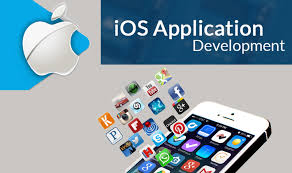IOS APP DEVELOPMENT APPRENTICE
in Mobile Development
Created by
Vinay Mishra
About this course
iOS App Development Apprentice Course Syllabus
Module 1: Introduction to iOS Development and Xcode
- Objective: To introduce students to iOS development basics and set up the development environment.
- Topics:
- Overview of iOS ecosystem: iPhone, iPad, WatchOS, macOS.
- Introduction to Xcode: Setting up Xcode and creating the first project.
- Understanding the iOS Simulator and testing apps on real devices.
- Introduction to Swift programming language.
- Basics of Interface Builder (Storyboards, Auto Layout, UI components).
- Exploring the Apple Developer Program and App Store submission process.
Module 2: Introduction to Swift Programming
- Objective: To get comfortable with the Swift programming language.
- Topics:
- Variables, constants, and data types.
- Control Flow: If statements, loops, switch cases.
- Functions and closures.
- Arrays, dictionaries, sets, and tuples.
- Object-Oriented Programming: Classes, structs, and inheritance.
- Error handling and optional values in Swift.
- Understanding protocols and delegates.
Module 3: Designing User Interfaces (UI)
- Objective: To learn how to design user interfaces for iOS applications.
- Topics:
- Designing with UIKit: Views, labels, buttons, images.
- Introduction to Auto Layout and constraints.
- Working with Table Views and Collection Views.
- Building custom UI components: Custom buttons, labels, etc.
- Understanding the View Controller and navigation controllers.
- Building interactive UIs with gestures and animations.
- Introduction to SwiftUI (optional, if time permits).
Module 4: Working with Data
- Objective: To teach students how to handle and store data.
- Topics:
- Introduction to Core Data for persistent storage.
- Working with UserDefaults for simple data storage.
- Fetching and displaying remote data using URLSession and JSON parsing.
- Introduction to databases: SQLite and Firebase (optional).
- Saving user data locally with FileManager.
Module 5: Networking and APIs
- Objective: To enable students to fetch and interact with online data.
- Topics:
- Making HTTP requests with URLSession.
- Parsing JSON data.
- Handling asynchronous calls and closures.
- Working with RESTful APIs: Authentication, authorization, and data fetching.
- Displaying dynamic data in UI components (e.g., TableView with data from an API).
- Introduction to third-party libraries with CocoaPods or Swift Package Manager.
Module 6: Debugging, Testing, and App Performance
- Objective: To teach students how to ensure their apps run smoothly and are bug-free.
- Topics:
- Debugging in Xcode: Breakpoints, print statements, and the console.
- Writing unit tests with XCTest framework.
- Introduction to Test-Driven Development (TDD).
- Performance testing and profiling using Instruments.
- Common performance issues in mobile apps and their solutions.
- Best practices for app optimization.
Module 7: Advanced iOS Development Topics
- Objective: To explore more advanced topics in iOS development.
- Topics:
- Push Notifications: Local and remote notifications.
- Location Services: Working with GPS, maps, and location-based services.
- Apple Pay Integration: Handling payments and Apple Wallet.
- In-App Purchases: Introduction to monetizing apps.
- App Lifecycle and Background Tasks: Managing background activities.
- Custom Animations: Creating smooth animations using Core Animation.
- App Security: Best practices for securing sensitive data and using Keychain.
Module 8: Final Project and App Submission
- Objective: To provide hands-on experience by building a complete app.
- Topics:
- Planning and designing the app interface and architecture.
- Implementing core features using the learned concepts.
- Writing unit and UI tests for the project.
- Debugging and final optimizations.
- Preparing the app for submission to the App Store.
- Understanding App Store guidelines and app submission process.
- Final project presentation and code review.
Course Delivery Plan
1. Duration
- Recommended Duration: 3-4 months (can be extended based on learner progress)
- Mode: Live online classes, recorded sessions, real-time coding workshops, and hands-on projects.
- Frequency: 3 sessions per week, each lasting 1.5 to 2 hours.
2. Weekly Breakdown
- Weeks 1-4:
- Module 1: Introduction to iOS Development and Xcode
- Module 2: Introduction to Swift Programming
- Weeks 5-8:
- Module 3: Designing User Interfaces
- Module 4: Working with Data (Core Data, UserDefaults, FileManager)
- Weeks 9-12:
- Module 5: Networking and APIs
- Module 6: Debugging, Testing, and App Performance
- Weeks 13-16:
- Module 7: Advanced Topics (Push Notifications, Location Services, In-App Purchases)
- Module 8: Final Project, Debugging, and App Submission
3. Key Features
- Live Interactive Classes: Engage with instructors in real-time for problem-solving and guidance.
- Code Along Sessions: During live sessions, students will code along with instructors, building the app step-by-step.
- Hands-On Projects: Throughout the course, students will work on smaller mini-projects to practice what they've learned, culminating in a final app project.
- Weekly Assignments: Short assignments to reinforce learning after every class.
- Live Q&A Sessions: Regular Q&A sessions to address student queries and discuss challenges.
- Peer Reviews: Students can share their projects with the class for peer feedback and collaborative learning.
- App Store Submission Guidance: Step-by-step instructions on how to publish apps on the App Store.
4. Resources
- Course Material: Slides, code snippets, and additional reading materials for each module.
- GitHub Repository: A shared code repository where students can find code samples and submit assignments.
- Mobile App: Access to course materials, assignments, and progress tracking through a dedicated mobile app.
- Community Forums: A space for students to ask questions, share projects, and collaborate.
5. Performance Tracking
- Weekly Progress Reports: Track student performance through quizzes, assignments, and class participation.
- Project Reviews: Detailed feedback on mini-projects and final app project.
- Peer Code Review: Provide feedback on each other’s code for collaborative learning.
- Final Exam/Project: A comprehensive final project where students create a fully functional iOS app and submit it to the App Store (optional).
Comments (0)

0
0 Reviews







